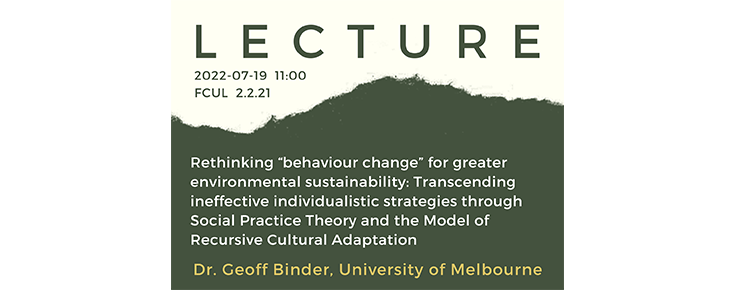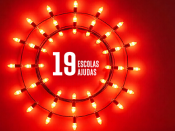
Por Geoff Binder (Lecturer Sustainability & Behaviour Change Science, University of Melbourne).
"Behaviour change" has become a holy grail. Many governments and non-government organisations pursue the changes necessary in human behaviour to shift us away from the climate catastrophe, species extinction and other environmental impacts that are radically changing the ecology of planet Earth. The overwhelming majority of behaviour change programs target individual’s knowledge and/or values. We tend to rely on the idea that people will change their behaviour if they understand how detrimental or immoral it is. Anyone who has worked on a change program will tell you that these strategies do not work very well, if at all. The academic literature has identified a widespread gap between what people do and what they think (the socalled values/action gap). Paradoxically, while change for greater environmental sustainability seem glacial, when speed is urgently needed, contemporary consumer culture and the information revolution are driving changeatan ever-increasingpace. Furthermore, as COVID-19 demonstrates, we can change our behaviours rapidly in a short period of time. This lecture will present a new way to understand human behaviour and what drives us. Dr Binder will touch on Social Practice Theory and introduce his Model of Recursive Cultural Adaptationto explain why we behave as we do and under what circumstances we might modify a Practice.
Geoffrey Binder teaches Sustainability & Behaviour Change, a multi-and trans-disciplinary subject that he designed for the Master of Environment at the University of Melbourne, Australia, which he has delivered for the last ten years to students across the university. Geoffrey’s PhD research looked at the intersection of existing everyday practices and innovation and how this effected the design and implementation of a “sustainability showcase” master-planned community (8000 houses on Melbourne’s northern fringe). This research led him to develop new theory regarding innovation and behaviour change. These insights inform Geoff’s teaching practice. He also uses these new ideas to help organisations change “the way things are done around here”; assisting them on their sustainability journey. Further information on Geoff’s research can be found at the University's Find an Expert page.
This is an in-person event. If you really (really!) cannot be here, but you want to participate remotely, send an email to ce3cdiv@ciencias.ulisboa.pt.
















